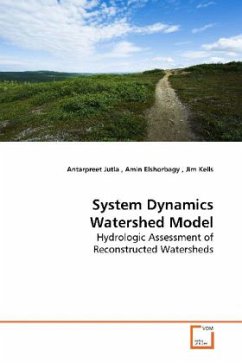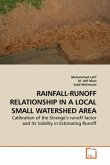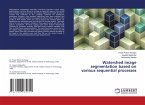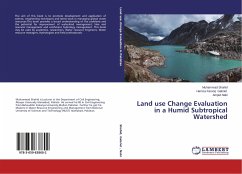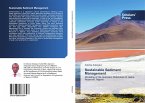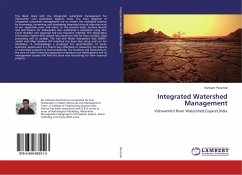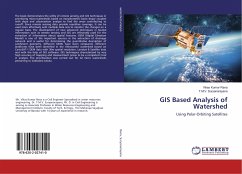Mining of oil sands in the sub-humid region of
Northern Alberta, Canada causes large-scale landscape
disturbance, which subsequently requires extensive
reclamation to re-establish the surface and
subsurface hydrology. In order to replicate the
hydrological behavior, assess the sustainability, and
trace the evolution of reconstructed watersheds over
time, a suitable modeling tool is required. In this
book, a system dynamics based model is
constructed to simulate the hydrological processes in
the reconstructed watersheds and to assess their
ability to provide the various watershed functions.
The System Dynamics Watershed Model (SDWM) is capable
of simulating vertical and lateral water movement,
surface runoff and evapotranspiration. The study
presented in this book is useful for mining
industries, water professionals and consultants, and
watershed modelers.
Northern Alberta, Canada causes large-scale landscape
disturbance, which subsequently requires extensive
reclamation to re-establish the surface and
subsurface hydrology. In order to replicate the
hydrological behavior, assess the sustainability, and
trace the evolution of reconstructed watersheds over
time, a suitable modeling tool is required. In this
book, a system dynamics based model is
constructed to simulate the hydrological processes in
the reconstructed watersheds and to assess their
ability to provide the various watershed functions.
The System Dynamics Watershed Model (SDWM) is capable
of simulating vertical and lateral water movement,
surface runoff and evapotranspiration. The study
presented in this book is useful for mining
industries, water professionals and consultants, and
watershed modelers.

